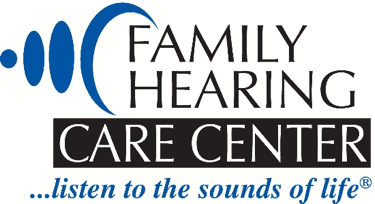
Debunking Common Myths: A Comprehensive Guide to Hearing Loss
As hearing professionals, our commitment to enhancing the quality of life for individuals with hearing loss extends beyond the clinic. In this article, we aim to dispel common misconceptions surrounding hearing loss, shed light on the latest advancements in prevention, diagnosis, and management, and underscore the crucial role of early detection.
Myth #1: Only the Elderly Experience Hearing Loss
One prevalent misconception is that hearing loss is exclusively an ailment of the elderly. While it is true that age-related hearing loss is common, individuals of all ages can be affected. Recent research has revealed an alarming increase in hearing loss among younger populations due to factors such as noise exposure, genetics, and health conditions. It is essential for people of all ages to be aware of the potential risks and adopt preventive measures.
Myth #2: Hearing Loss Is Inevitable and Unpreventable
Contrary to popular belief, hearing loss is not always an inevitable consequence of aging. There are various preventive measures individuals can take to safeguard their hearing health. Recent advancements highlight the importance of adopting hearing protection strategies in noisy environments, limiting exposure to loud sounds, and incorporating a healthy lifestyle that supports overall well-being, which includes hearing health.
Myth #3: Hearing Loss Only Affects the Ears
Hearing loss is not solely an issue confined to the ears. Recent research has illuminated the intricate relationship between hearing health and overall cognitive function. Untreated hearing loss has been linked to an increased risk of cognitive decline and dementia. Addressing hearing loss through timely interventions not only improves auditory function but also contributes to maintaining cognitive vitality.
Early Detection: A Game-Changer
Timely detection of hearing loss is paramount for effective management. With advancements in screening technologies, identifying hearing issues in their early stages has become more accurate and accessible. Audiologists now utilize innovative methods that go beyond traditional audiograms, enabling a more comprehensive understanding of an individual’s auditory profile.
Advancements in Diagnosis: Beyond the Audiogram
The conventional audiogram, while still a valuable tool, is no longer the sole method of assessing hearing health. Advanced diagnostic techniques, such as otoacoustic emissions (OAE) and auditory brainstem response (ABR) testing, provide a more detailed picture of the auditory system. These tests can identify issues not evident on a standard audiogram, allowing for a more personalized and effective treatment plan.
Revolutionary Management Strategies
The management of hearing loss has also witnessed revolutionary advancements. Traditional hearing aids have evolved into sophisticated, discreet devices equipped with cutting-edge technology. Artificial intelligence algorithms in modern hearing aids can adapt to different listening environments, providing a seamless and customized auditory experience. Additionally, cochlear implants have become increasingly sophisticated, offering improved speech perception and sound localization for individuals with severe hearing loss.
Futuristic Interventions: A Glimpse into Tomorrow
The future of hearing health holds promising prospects, with ongoing research exploring innovative interventions. Gene therapy, for instance, is being investigated as a potential solution for genetic hearing disorders. Researchers are also exploring the use of regenerative medicine to restore damaged hair cells in the inner ear, a groundbreaking approach that could revolutionize the treatment of certain types of hearing loss.
Compassionate Communication: A Key Element
As hearing professionals, fostering open and compassionate communication with our patients is crucial. Many individuals with hearing loss may hesitate to seek help due to stigma or fear. It is our responsibility to create a supportive environment where patients feel comfortable discussing their concerns. Emphasizing the emotional and social aspects of hearing loss is essential, as it goes beyond the physical aspects of the condition.
Conclusion: A Holistic Approach to Hearing Health
Dispelling myths, embracing preventative measures, adopting advanced diagnostic tools, and exploring futuristic interventions collectively contribute to a holistic approach to hearing health. As hearing professionals, our mission extends beyond merely addressing auditory impairments; it involves empowering individuals to proactively care for their hearing and overall well-being. By staying informed about the latest advancements and encouraging early detection, we pave the way for a future where hearing loss is not only effectively managed but prevented altogether.
